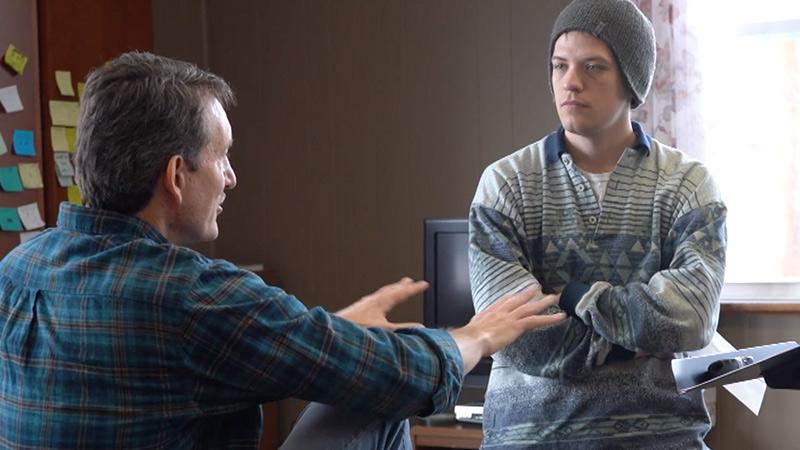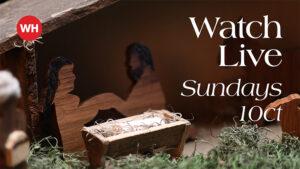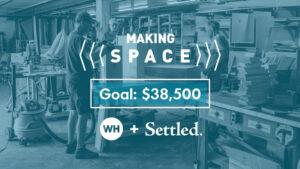by Emily Morrison
What really brought me to SOMA was that I was definitely an in-pain person. I didn’t know what I wanted to do, and I had a lot of ideas in my head about what it meant to be a Christian that weren’t good, and it made me see Christianity as a really awful thing in a lot of ways.
Matt Trester was stuck, and he didn’t know what to do about it. He’d been coming to church for twenty some years and kept hearing that Jesus healed people, but he couldn’t figure out how to receive that healing for himself. So, he dove into church life by volunteering in children’s ministry and youth group, going to Bible studies, reading theology books and even interning with a pastor. But while it seemed these projects were helping other people heal, he didn’t feel like he was changing.
Matt explains, “I would often go through these long spirals where I’d be hurting in my religiosity department, so I would jump head over heels into the church. I’d feel better for a little bit, but then it would stop helping me, and I’d fall out of the church. When it got really bad, I’d jump back in. I felt like I was on a wheel.”
Unsure what to do next, Matt heard about Woodland’s School of Missional Apprenticeship (SOMA) and enrolled in its first class in 2018.
SOMA is a nine-month program nicknamed “the seminary for everybody.” Students take a rigorous class schedule taught by Woodland’s teaching team and guest lecturers. Outside of the classroom they join together in communal and missional living. SOMA’s vision is to equip followers of Jesus to join or form local, small-scale missional discipleship communities that tangibly manifest Jesus’ beautiful Kingdom.
When Matt showed up that fall, he didn’t know exactly what he was getting into. In some ways it was just another attempt to feel better. He says, “To some degree I was looking for a high, looking for a one-dimensional Bible camp; something that made me feel good so I could walk away happy.”
But SOMA wasn’t like that at all. The first big adjustment came with the housing setup. Most students share a place to help them experience and practice communal living. Matt moved into a small apartment with four other men from the program and soon found he had a lot to learn.
“I’d always wanted to get close to people and live in community and what I realized very quickly was that I had barriers to really getting into community, and also that community is hard! I realized I was someone that could bond intellectually but was closed off in my emotions. The times I needed community most, when I was frustrated, bitter, angry, or even just sad or anxious, that’s when I turned away the most.”
As time went by, Matt began to feel the impact of living so closely with others. “I was part of a community that said, ‘Hey it’s okay to make mistakes. You can get close. We won’t leave you and we’re gonna make it hard for you to leave.’ It was really powerful and good for me to be in a community that wanted me there.”
In order to learn how to live alongside others, Matt was taking a hard look at his past. “I knew I was a wounded person, but I didn’t know what the wounds were, and even if I had known what they were, I didn’t know how to receive healing for them. We had small groups where we talked about our upbringing and things that happened to us. For me specifically, I had a bad relationship with my parents growing up, it was really empty, and I didn’t have an emotional attachment. I’d always heard God was my father and I’d tried to visualize him as a person I could depend on, but I was never able to because I never realized that I was a person hurting in that way. So, it really helped me understand who I was and the pains I had and helped me bring Jesus into my life to actually heal the wounds that were there.”
Matt also found the intensive theology classes to be formative in reshaping his views of God. Matt’s family did not believe in exploring and challenging their faith. Their perspective was: this is how it is, don’t ask questions. For Matt, this meant that he held on to a lot of toxic views of God. He explains, “I had parts of my theology that made me think I was unlovable, bad and terrible and I had evil ideas about God and his character. SOMA helped me learn God was better than I ever thought he could be.”
It’s been over a year now since Matt left SOMA and he feels like he’s finally off the wheel that brought him there in the first place. “I wasn’t even aware of the deep pains I had that continued to push me into these cycles of insecurity and pain and frustration. SOMA helped me see those, understand them and then bring Jesus in to heal those wounds.”
As he reflects on how he has changed since ending the program he says, “I’m still me, Matt, but my mechanisms for dealing with my pain are very different, my theology has changed and my capacity for community is so much higher.”
SOMA’s next class will be starting Fall 2020. What does Matt have to say to people who are interested? “I see people all over the church who need something like this, and I think there’s something for absolutely everyone here, because even if you don’t have my wounds, the theology is so great, and growing to understand yourself is objectively useful. It is hard! It is a challenge, but you’re going to get things you maybe didn’t want when you came in, but that you needed.”



